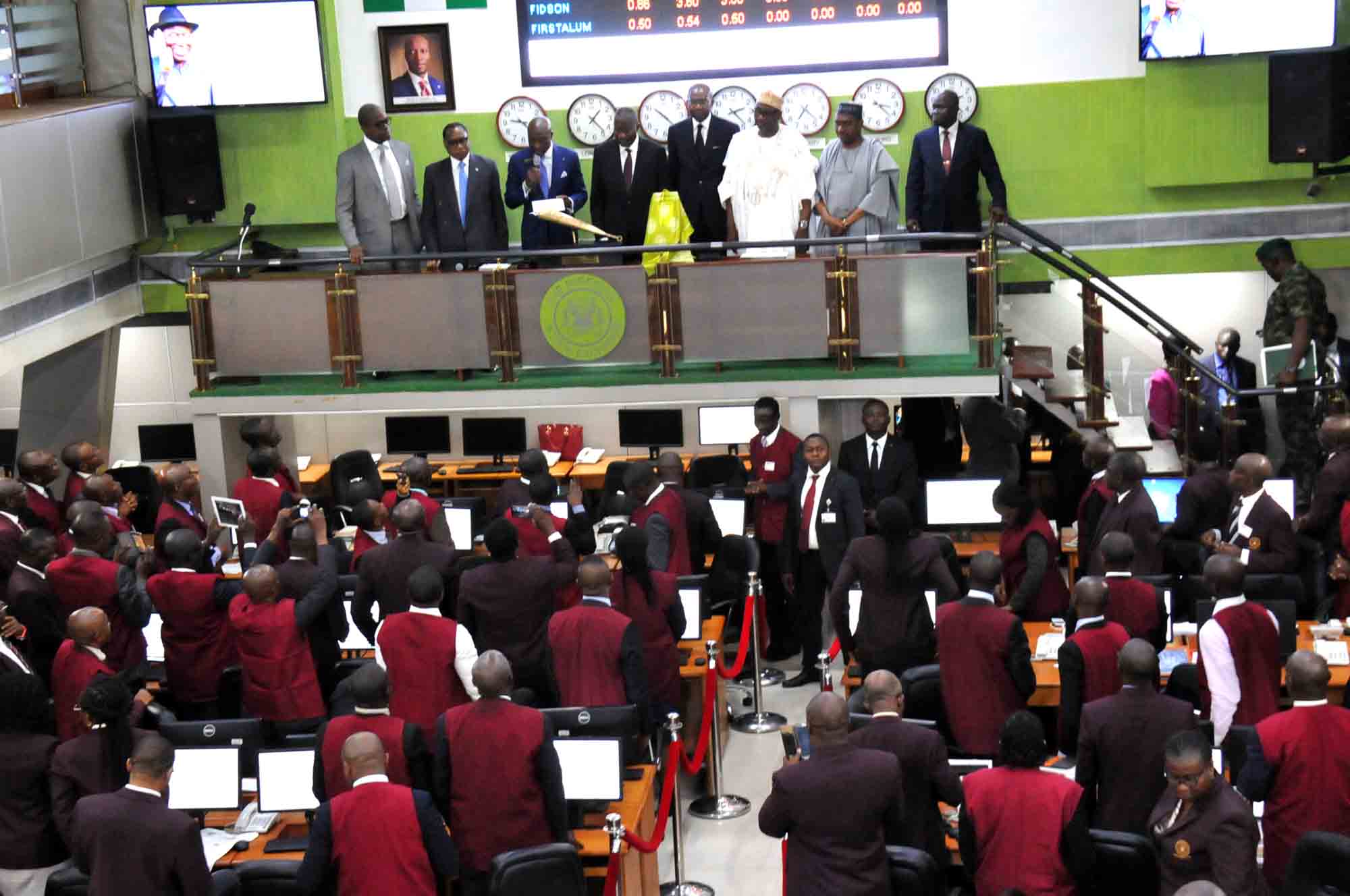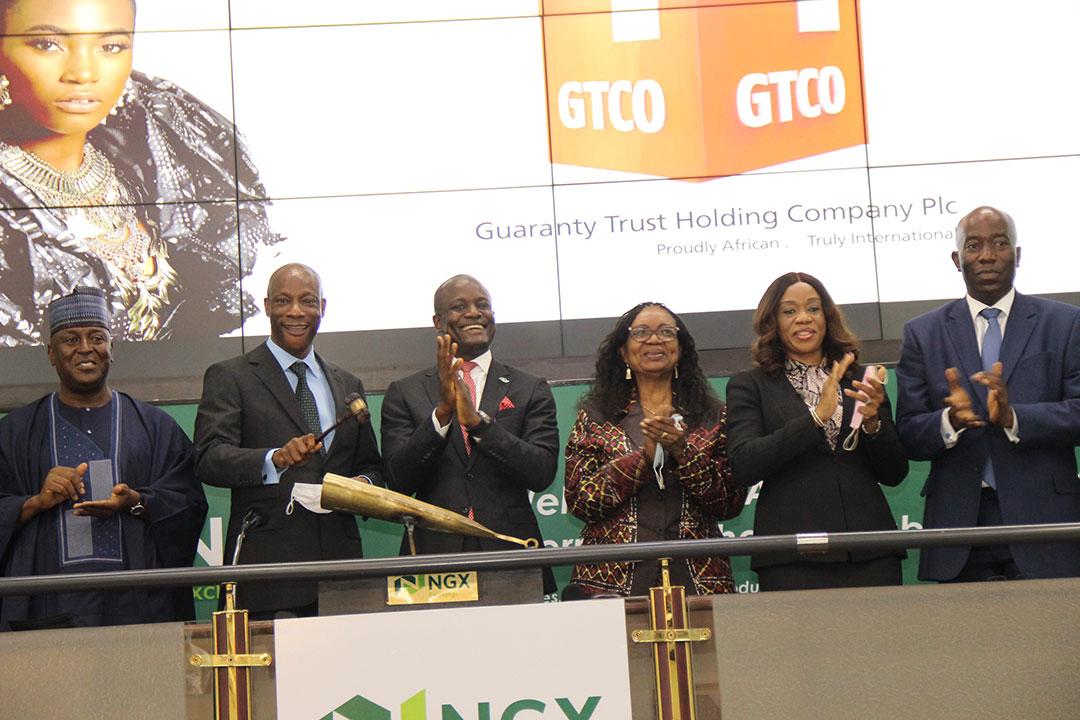- NSE Index Rises 3.4% as Stock Market Rallies
The rally at the stock market continued for the third consecutive week as the Nigerian Stock Exchange (NSE) All-Share Index (NSE ASI) appreciated by 3.4 per cent to close at 26,707.10. Although the market opened for only four days as Monday was declared public holiday to mark the Eid-el-Maulud celebration, the bullish trend was sustained following investors’ swoop on oil and gas stocks due to renewed interest in the sector.
Investors’ interest in oil stocks was boosted by the decision of OPEC and non-OPEC members agreed a deal to curb their production leading to a rally in the price of crude oil.
At the end of the week, the market surged by 3.4 per cent to close at 26,707.10, while market capitalisation rose by same margin to close higher at N9.189 trillion. Similarly, all other indices finished higher during the week with the exception of the NSE Insurance, NSE
Consumer Goods that depreciated by 0.53 per cent, 1.68 per cent, and 0.46 per cent in that order. The NSE Oil & Gas Index recorded the highest appreciation of 7.36 per cent following gains posted by Seplat (+20.59 per cent) and Forte Oil (+9.42 per cent). Likewise, the NSE Banking Index followed with a growth of 6.28 per cent while the NSE Industrial Goods Index went up by 3.51 per cent.
Daily Market Performance Summary
In line with its bullish trend, the equity market opened the week on a positive note, as the NSE ASI appreciated by 0.98 per cent to close at 26,071.16, lifted by gains in share prices of Seplat, Forte Oil, Access Bank, Dangote Cement and GTBank.
The total value of stocks traded on the first day was N2.41 billion, up by 47.33 per cent from N1.64 billion recorded the last trading day, while the total volume of stocks traded was 376.69 million shares in 2,885 deals.
The NSE Oil & Gas sector led the sectors, surging by 6.3 per cent on the back of on the back of increased buying interest in Seplat (+10.3 per cent ) and Forte (+10.2 per cent) while the NSE Industrial Goods Index gained 0.9 per cent. The NSE Banking Index followed suit, rising 0.7 per cent as gains in GTBank (+2.0 per cent) and Access Bank (+2.0 per cent) bolstered the sector.
On the contrary, the NSE Insurance Index fell by 0.7 per cent due to losses in AXA Mansard (-4.7 per cent) and WAPIC Insurance (-2.0 per cent). Similarly, the NSE Consumer Goods Index marginally went down by 0.02 per cent on account of declines in Seven-Up Bottling Company Plc (-0.8 per cent).
On Wednesday, which was the second trading day, the market sustained the uptrend as the NSE ASI appreciated by 1.29 per cent to close at 26,407.64. Just like the previous day, the NSE Oil/Gas Index rose 4.4 per cent propelled by gains in the shares of Forte Oil and Seplat.
Investors traded 205.40 million shares valued at N4.28 billion in 3,275 deals. The most actively traded sectors were: Financial Services (159.87 million shares), Consumer Goods (25.34 million shares) and Conglomerates (8.10 million shares), while the most actively traded stocks were: UBA (54.69 million shares), Diamond Bank (22 million shares) and Zenith Bank (21.18 million shares).
All sectors closed in the green save for the NSE Consumer Goods Index which lost on account of declines in Nigerian Breweries (-2.5 per cent) and Champion(-4.2 per cent). The NSE Oil & Gas Index remained the best performing sector with 4.4 per cent growth, while the NSE Banking Index appreciated by 2.3 per cent on the account of strong demand for ETI (+4.9 per cent) and GTBank (+3.0 per cent). In a similar vein, Dangote Cement lifted the NSE Industrial Goods Index by 1.0 per cent, just as the NSE Insurance Index grew by 0.5 per cent due to appreciation in the share price of WAPIC Insurance Plc.
The equity market maintained its upward trend on Thursday with the NSE ASI rising for the 6th consecutive trading session. The positive performance was on price appreciation in banking stocks such as UBA (+4.8 per cent), GTBank (+4.4 per cent) and Zenith (+1.6 per cent). Accordingly, market capitalisation rose N52.1 billion to settle at N9.2 trillion even though market activity fell as volume and value traded declined 2.6 per cent and 64.9 per cent to close at 200.0 million shares and N1.5 billion respectively.
The three most actively traded stocks were: International Energy Insurance Company (37.84 million shares), UBA (29.63 million shares) and FBN Holdings (24.04 million shares). The most actively traded sectors were: Financial Services (173.43 million shares), Conglomerates (11.99 million shares) and Oil and Gas (6.25 million shares).
The appreciation in the price of Dangote Cement shares lifted the equity market on Friday with the NSE ASI rising by 0.56 per cent to close higer at 26,707.10. Apart from Dangote Cement, gains recorded in the share prices of ETI, Oando, Union Bank and Honeywell also contributed to the growth.
Market turnover
Despite the fact that the market opened for four days, the volume and value of shares traded increased compared to the previous week’s performance. Investors traded 1.656 billion shares worth N12.580 billion in 12,860 deals in contrast to a total of 894.759 million shares valued at N10.629 billion that exchanged hands in 13,418 deals the previous week.
The Financial Services Industry remained the most active with 1.504 billion shares valued at N6.183 billion traded in 7,311 deals; thus contributing 90.82 per cent and 49.15 per cent to the total equity turnover volume and value respectively.
The Consumer Goods Industry followed with 51.395 million shares worth N4.753 billion in 2,027 deals. The third place was occupied by the Conglomerates Industry with a turnover of 46.282 million shares worth N52.408 million in 553 deals.
Also traded during the week were a total of 2.439 million units of Exchange Traded Products (ETPs) valued at N18.276 million executed in 15 deals, compared with a total of 2,850 units valued at N355,162.85 transacted the previous week in 21 deals. Similarly, total of 411 units of Federal Government Bonds valued at N428, 995.77 were traded last week in one deal.
Gainers and losers
Meanwhile, 40 equities appreciated last week higher than 27 equities of the previous week. Conversely, 19 equities depreciated in price, compared with 36 equities of the previous week, while 116 equities remained unchanged higher than 112 equities recorded in the preceding week.
Honeywell Flour Mills Plc led the price gainers with 24.5 per cent, trailed by ETI with 21.1 per cent. Seplat went up by 20.5 per cent, just as United Capital Plc, Livestock Feeds Plc and Vitafoam Nigeria Plc chalked up 11.9 per cent, 11.5 per cent and 10.9 per cent respectively.
Other top price gainers included: African Prudential Registrars Plc, Neimeth International Pharmaceuticals Plc (10.0 per cent apiece); Forte Oil Plc (9.4 per cent) and GTBank Plc (2.1 per cent).
Conversely, Portland Paints and Products Nigeria Plc led the price losers with 13.5 per cent. Unilever Nigeria Plc followed with 12.1 per cent. Fidson Healthcare Plc, Caverton and Mobil Oil shed 8.6 per cent, 8.5 per cent and 8.2 per cent in that order.
Beta Glass Company Nigeria Plc, Airline Services and Logistics Plc went down by 7.8 per cent and 5.3 per cent respectively. Avon Crowncaps Plc, AXA Mansard Insurance Plc and Cadbury Nigeria Plc rose by 5.0 per cent, 4.1 per cent and 4.0 per cent in that order.


 Naira4 weeks ago
Naira4 weeks ago
 Billionaire Watch4 weeks ago
Billionaire Watch4 weeks ago



 Naira4 weeks ago
Naira4 weeks ago






 Naira4 weeks ago
Naira4 weeks ago


 Naira3 weeks ago
Naira3 weeks ago






 Naira3 weeks ago
Naira3 weeks ago
 Economy4 weeks ago
Economy4 weeks ago


 Naira3 weeks ago
Naira3 weeks ago





















